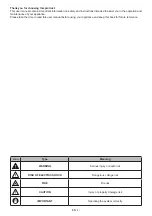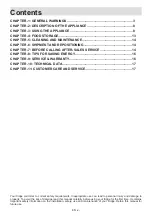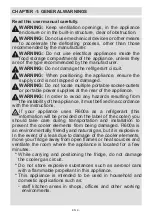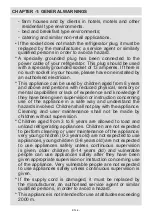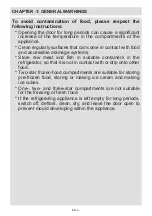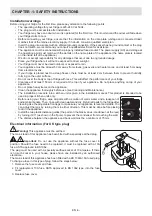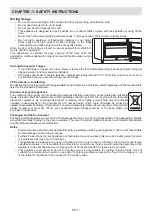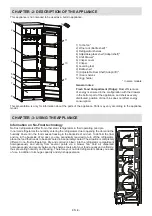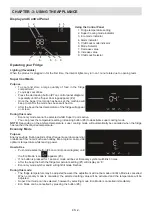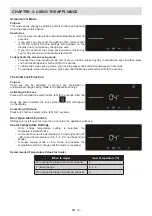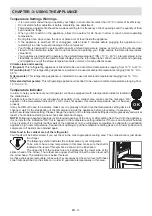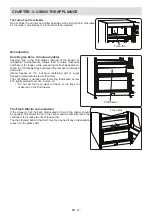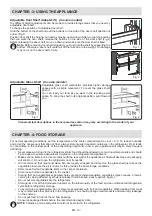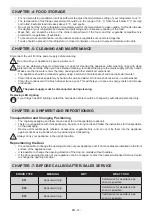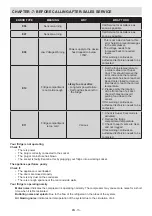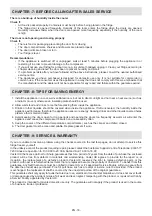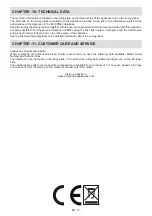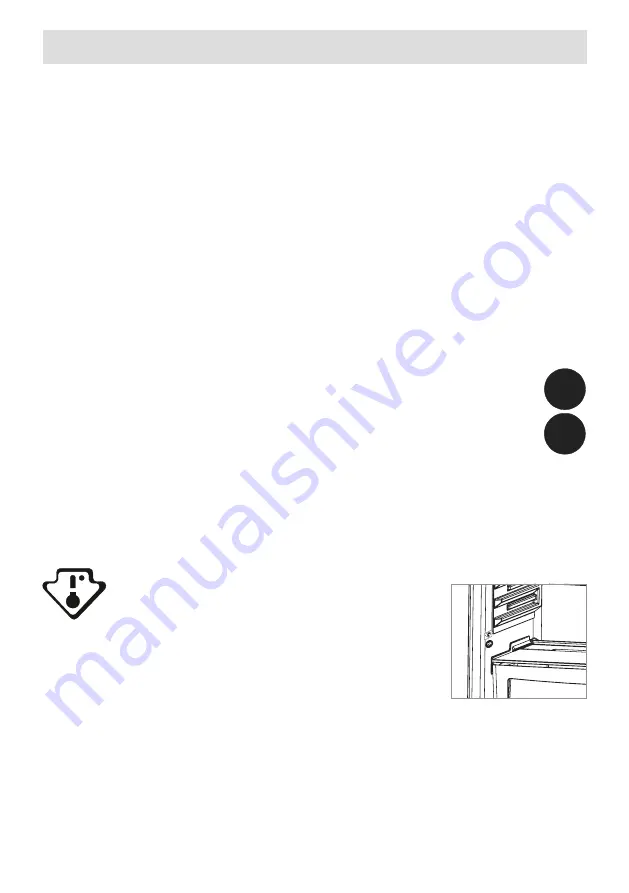
EN -11-
CHAPTER -3: USING THE APPLIANCE
Temperature Settings Warnings
• It is not recommended that you operate your fridge in environments colder than 10°C in terms of its efficiency.
•
Do not start another adjustment before completing one adjustment.
•
Temperature adjustments should be made according to the frequency of door openings and the quantity of food
kept inside the fridge.
• When you first switch on the appliance, allow it to operate for 24 hours in order to reach normal operating
temperature.
•
During this time, do not open the door or place a lot of food inside the appliance.
•
If the appliance is switched off or unplugged, wait at least 5 minutes before plugging the appliance in or
restarting it in order to prevent damage to the compressor.
• Your fridge is designed to operate within specific ambient temperature ranges, according to the climate class
stated on the information label. We do not recommend operating your fridge outside the stated temperatures
value limits.
•
Your appliance is designed to operate in the ambient temperature (T/SN = 10°C - 43°C) intervals stated in the
standards, according to the climate class displayed on the information label. We do not recommend operating
your appliance out of the stated temperature limits in terms of cooling effectiveness.
Climate class and meaning:
T (tropical):
This refrigerating appliance is intended to be used at ambient temperatures ranging from 16 °C to 43 °C.
ST (subtropical):
This refrigerating appliance is intended to be used at ambient temperatures ranging from 16 °C to
38 °C.
N (temperate):
This refrigerating appliance is intended to be used at ambient temperatures ranging from 16 °C to
32 °C.
SN (extended temperate):
This refrigerating appliance is intended to be used at ambient temperatures ranging from
10 °C to 32 °C.
Temperature indicator
In order to help you better set your refrigerator, we have equipped it with a temperature indicator located in
the coldest area.
To better store the food in your refrigerator, especially in the coldest area, make sure the message “OK”
appears on the temperature indicator. If « OK » does not appear, this means temperature has not been set
properly
It may be difficult to see the indicator, make sure it is properly lit.Each time the temperature setting device is
changed, wait for the stabilisation of the temperature inside the appliance before proceeding, if necessary,
with a new temperature setting. Please change the position of the temperature setting device progressively and wait at
least 12 hours before starting a new check and potential change.
NOTE:
Following repeated openings (or prolonged opening) of the door or after putting fresh food into the appliance,
it is normal for the indication “OK” not to appear in the temperature setting indicator. If there is an abnormal build up
of ice crystals of ice crystals (bottom wall of the appliance) on the refrigerator compartment, evaporator (overloaded
appliance, high room temperature, frequent door openings), put the temperature setting device on a lower position until
compressor off periods are obtained again.
Store food in the coldest area of the refrigerator.
Your foods will be better stored if you put them in the most appropriate cooling area. The coldest area is just above
the crisper.
The following symbol indicates the coldest area of your refrigerator.
To be sure to have a low temperature in this area, make sure the shelf is
located at the level of this symbol, as shown in the illustration.
The upper limit of the coldest area is indicated by the lower side of the
sticker (head of the arrow). The coldest area upper shelf must be at the same level with
the arrow head. The coldest area is below this level.
As these shelves are removable, make sure they are always at the same level with these
zone limits described on the stickers, in order to guarantee temperatures in this area.
OK


